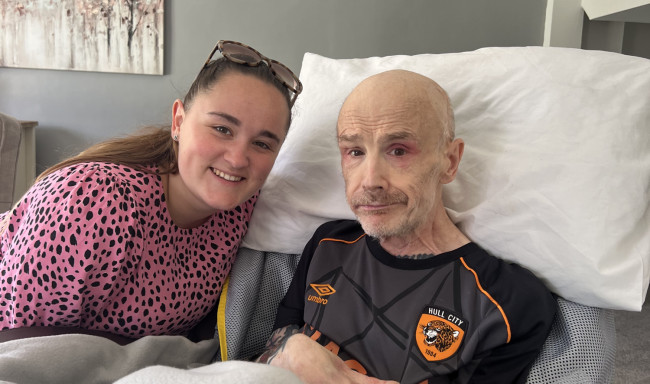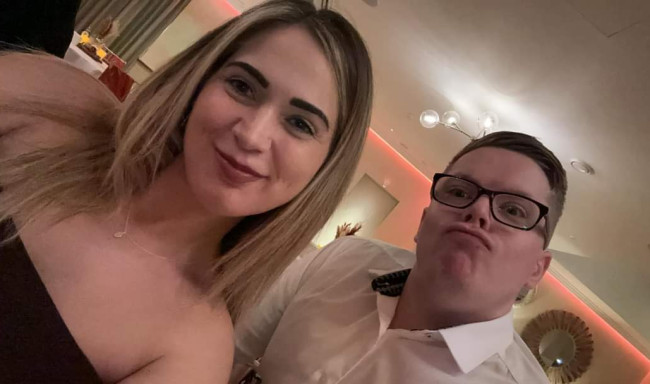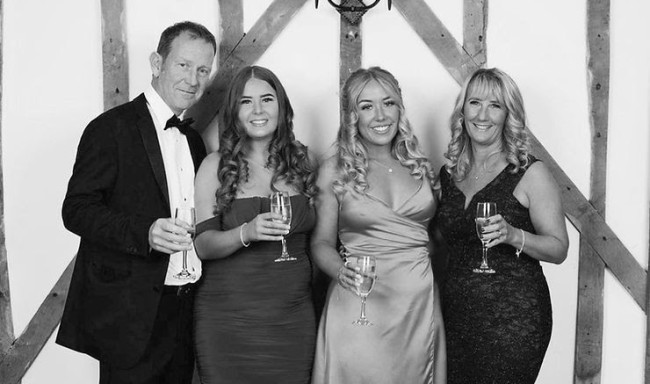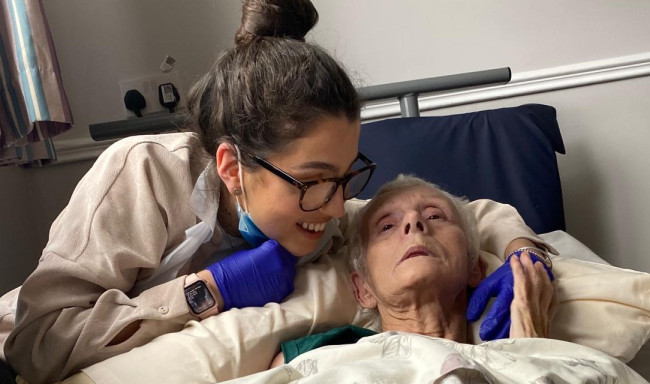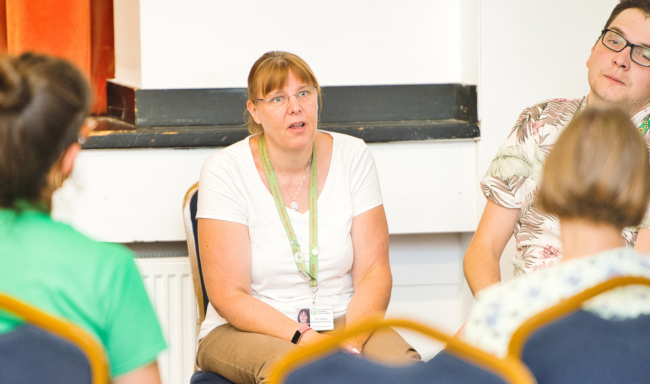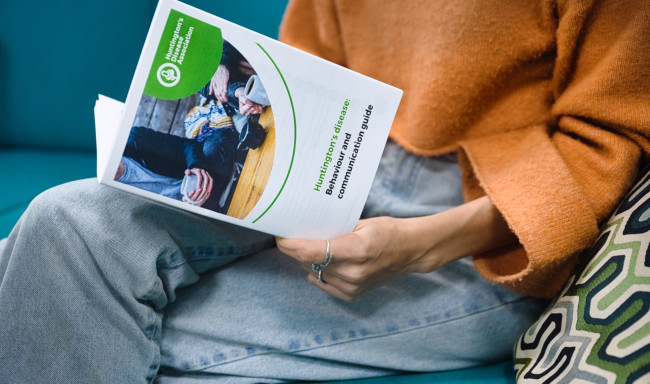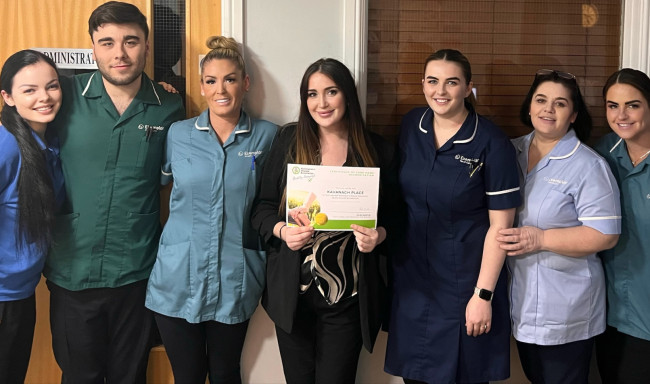Chris, 51, kindly shared with us his experiences of staying active with Huntington’s disease. He enjoys participating in research and hopes that by sharing his story, he can help others be inspired to keep active.
About Chris
"I have worked as a housing officer for 20 years. As you can imagine, dealing with antisocial behaviour can be very stressful so I like to manage my work/ life balance. At 9 o’clock I switch my laptop on and at 5 o’clock I switch it off; I don’t worry about what still needs to be done as there is always another day. Overworking yourself is pointless – it may feel helpful in the short term, but the stress is not helping your health long term! "
Huntington’s disease
"I was diagnosed in 2015, following the diagnosis of my mum. I have two children who don’t carry the gene, so I consider myself extremely lucky that they and my grandchildren aren’t going to develop Huntington’s. I am aware of the involuntary movements. My feet are always on the go. I've noticed for a good few years that I'm wearing carpets out because my feet can't keep still. I also find now that my level of concentration is waning, so I'm having to read work emails three or four times for them to make sense and sink in."
Physical activity I enjoy
"I spend quite a bit of time at the allotment these days and I'm always actively doing stuff around the house and fixing things in the garage. I enjoy this type of activity more than doing weights or going to the gym. I like to keep active without being overactive. Whilst digging and tending the allotment, you don't realise how hard you work sometimes and then you're breaking a sweat!
I have four allotments that I share with others. We have about 80 meters of potatoes between us, and over 20 meters in length of runner beans as well as sweetcorn, butternut squash, chard and kale to name a few. I enjoy sharing my produce with family and friends; when they have a nice feeling from something that I've grown, it seriously lifts my esteem.
At the allotments, I’ve met other like-minded people - there’s a lot of banter when we're together! We share our produce between us and socialise afterwards. That's the best thing about it; it has that nice community feel and it puts a smile on my face when I go. When I’m there it’s quite therapeutic because we talk about our issues and about what we’ve gone through in our lives. You know everybody is going through similar stuff in a different way.
I do find that I'm tripping over quite a bit in my allotment because of my balance and involuntary movements. This means that I am falling over produce and it really frustrates me because obviously I might ruin them. I was thinking about making bigger tracks next year which would make it easier for me to walk. Not yet though. It's about creating a better environment for myself without worrying about falls and trips."
My motivations to stay active
"My two grandchildren keep me really active. It's non-stop with them 24/7 and we’re enjoying planting pumpkins and watermelons together! I often take my grandson to the allotment. He was helping me pull the chard leaves the other week; I turned around and there he was, just sat on a heap of mud picking and eating a leaf of chard!
My mum stayed active until her last days; she would sit on the floor and play with her great-grandchildren - even at 77! In 2020, she passed away and her involuntary movements were really profound at that time. It’s tough watching a family member go through that, but I think that's what spurs me on as well.
I have used a Fitbit as a driver to make sure I was doing about 10,000 steps a day. For me, it was another positive push to do that little bit more walking and monitor my activity. My Fitbit has been through loads of earth and manure - I’m already on my second strap! In my garage, I might be just working on something that you might not think is a lot of exercise. But actually, you’re still doing physical activity without even knowing it.
My drive also comes from doing things that give me a reason to be positive every day - even if you only take one positive outcome of the day. It is lovely knowing that the hard work that I did at the allotment back in March, April and May is going to be coming into fruit."
Overcoming challenges to staying active
"I love the summertime, so I make the most of it because winter is tougher for me. There are still things to do at the allotment, but nowhere near as much as what I would do in the summer. It isn't easy at times, especially with motivation. You’re getting up and it’s dark, and you’re finishing work and it’s dark. The weather is horrendous and it’s stormy outside, so it’s difficult to be overly positive. I tend to focus on the stuff that I’m doing, like DIY around the house or preparing for the Christmas family get-together.
About two years ago, I went to pick my Brussels sprouts from the allotment for Christmas dinner. I went down the lane in my wellies and it was so wet I got bogged down. I couldn't get out, I was stuck, sinking in the clay! I ended up having to dig my wellies out with bare feet. I'm glad nobody saw that on the camera, let me tell you! It’s funny looking back – we still laugh and joke about it. I don't take myself seriously at all; I like to joke around with people because you use so many muscles when you smile. When you start smiling everyone else starts smiling, it's good. Everybody should smile every day!"
Advice to others to stay active with Huntington’s disease
"With the progressive condition I have, it’s quite easy to roll up in a ball and I get some mornings where I don't want to get out of bed, but I always do. I just try to do something positive and take the opportunities available to me. Set yourself a goal; you don’t need to start and finish it on the same day – take your time. If it takes several weeks, it takes several weeks but just aim to achieve your goal. It doesn't matter what you do besides just doing something positive and then enjoying the outcome of it. It could be anything, even walking. If you come to the end of the walk, and have a positive thought from it, even if it’s just one positive thought for the day, it’s a bonus."
This interview was conducted by students from Cardiff University and led by Dr Una Jones. Thank you on behalf of the Huntington's Disease Association for working on these studies as part of a physical activity project.


